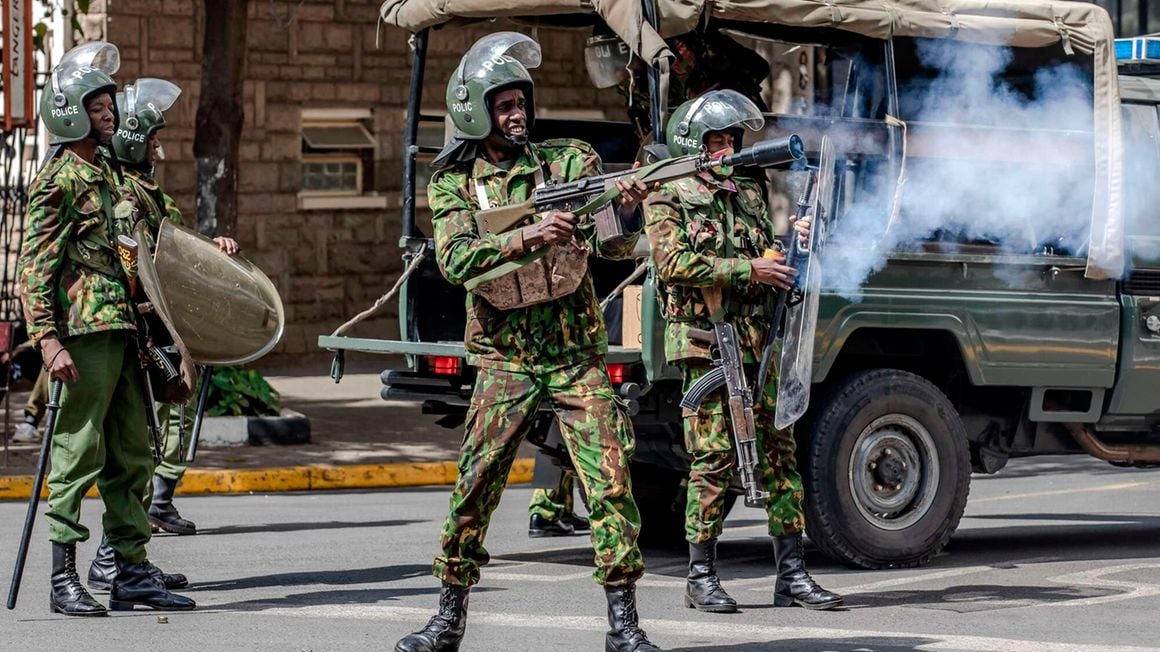A police officer fires teargas at protesters in Nairobi, Kenya, on March 20, 2023. NMG PHOTO
Business operators in the Nairobi Central Business District (CBD) and other major towns in the country kept off from their enterprises for the better part of the day Monday as police officers engaged Azimio La Umoja protestors who had taken to the streets.
In Nairobi, the transport system was paralysed with operators fearing being caught in the clash between the armed anti-riot officers and the demonstrators.
Minutes to 3 PM, the battle intensified as ODM leader Raila Odinga emerged from his home to lead his lieutenants in what was intended as a mass march to State House, efforts that were thwarted by heavily armed police officers who remained adamant that the route path could not be let open.
Deputy President Rigathi Gachagua speaking from Mombasa claimed that the day-long protests have cost the country up to Sh2 billion.
He urged Mr Odinga to call off the protests saying they were rolling back the gains that the country had made in terms of economic recovery.
”Kenyans should ignore being incited into violence and destruction of properties. As it is, a number of businesspeople did not open shops due to fear of looters threatening businesses. So far, the country has lost two billion today from these protests across the country,” stated Gachagua.
“We are happy that President William Ruto is in charge and has ensured that no life has been lost and no property has been destroyed.”
Mr Odinga has vowed not to relent in the fight against the rising cost of living, electoral justice and ongoing reconstitution of the Independent Electoral and Boundaries Commission (IEBC). This email address is being protected from spambots. You need JavaScript enabled to view it., NMG






